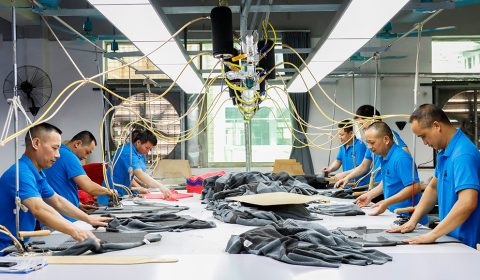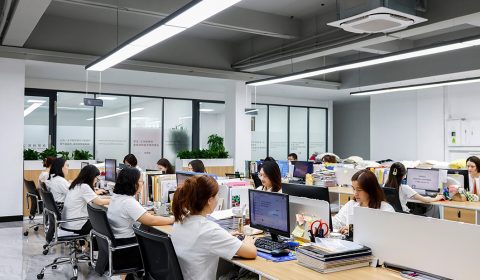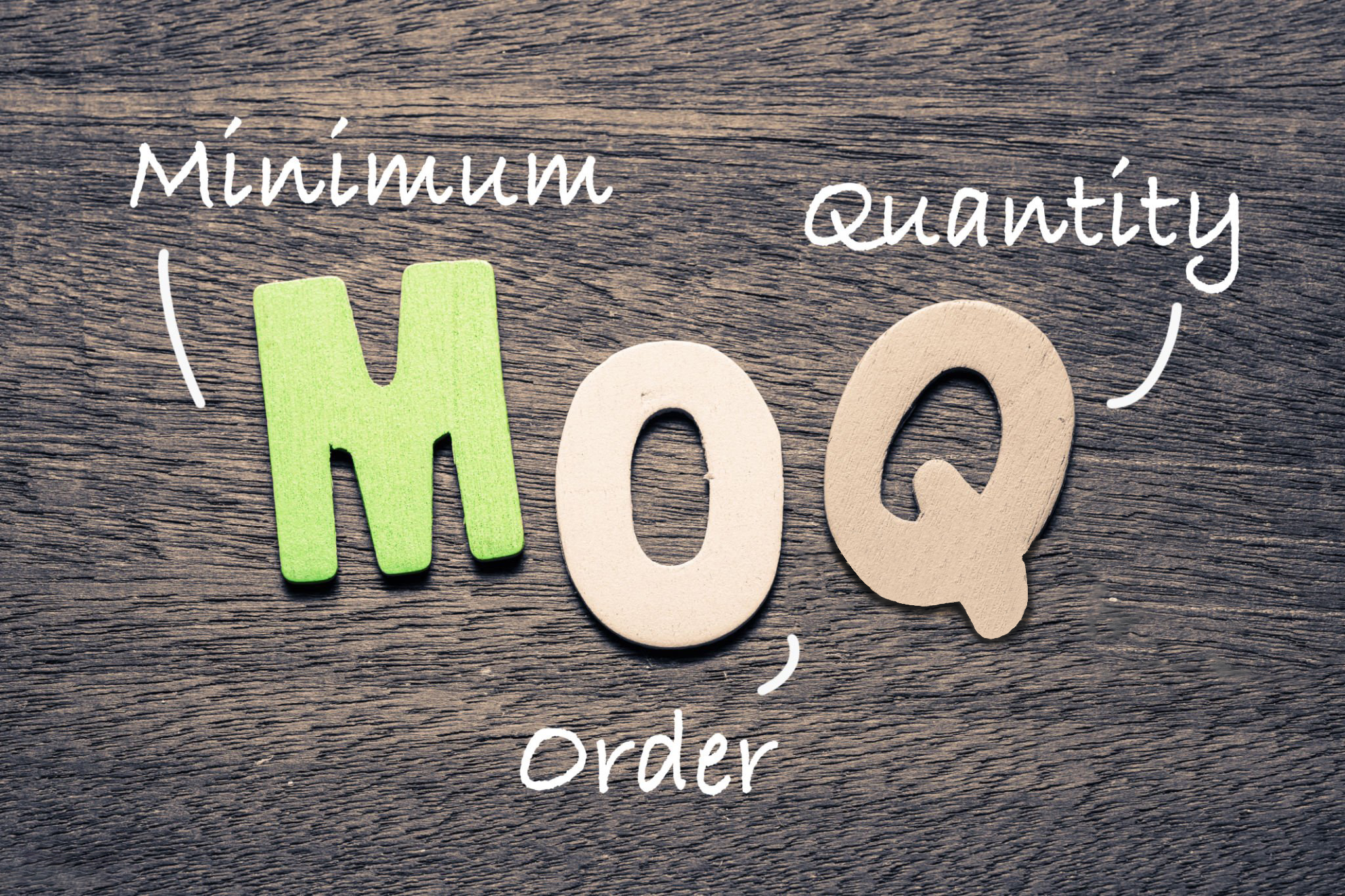As an important branch of the textile industry, the global woolen knitting industry plays a key role in the global economy. Woolen knitting industry is a broad industry involved in production, trade and employment, and has played a significant role in promoting global trade and economic growth.
Wool knitting products cover a wide range from clothing to household goods, including natural fibers such as wool, cashmere, camel hair, as well as blended products of various synthetic fibers. These products not only meet people’s basic needs, but also play an important role in fashion and functionality. The importance of the global woolen knitting industry is therefore reflected not only in its direct contribution to the consumer market, but also in its broader impact on supply chains and employment.
Woolen knitting is one of the main economic pillars in many countries and regions, especially in those countries dominated by the textile industry. This includes not only production, but also everything from raw material procurement to design, manufacturing and sales. The prosperity of the global woolen knitting industry has not only created rich economic returns for the various participants, but also provided diversified and high-quality products for the global market.
Suppliers play a vital role in the global woolen knitting industry. As a key link in the entire supply chain, suppliers directly influence and drive the development of the entire industry by providing high-quality raw materials, advanced production technology and keen insight into market needs.
First, suppliers provide a solid foundation for the entire production chain by ensuring the quality and stable supply of raw materials. They work with farms, textile mills and others to ensure that wool or other fibers from the source meet high standards of quality and environmental protection. This stable supply of raw materials provides manufacturers with a reliable production base, ensuring product quality and consistency.
Secondly, suppliers play an important role in technological innovation. By introducing advanced textile technology and production processes, they have not only improved production efficiency, but also brought more diversified and innovative products to the industry. This technological innovation directly affects the design and performance of woolen knitting products, making them more in line with fashion trends and market demand.
Industry size and growth trend
Woolen knitting industry, as an important branch of textile industry, occupies a significant position in the global economy. The industry is huge and its growth trend has remained solid over the past few years. This is mainly due to the continuous demand for high-quality, comfortable and fashionable woolen goods. With the improvement of global living standards and the enhancement of fashion awareness, the woolen knitting market has shown a significant growth trend in terms of market size and output value.
The growth in the size of the industry is not only driven by developed markets, but also by the rise of emerging markets. Consumers’ pursuit of quality and innovation in developed countries has driven the demand for high-end woolen goods, while the rise of emerging markets has provided a broader scope for the mass market. This trend has enabled global woolen knitwear suppliers not only to have a solid position in traditional markets, but also to actively explore emerging markets and promote the continuous expansion of the entire industry.
Regions and countries participating in the market
The distribution of global woolen knitting suppliers shows a certain trend of regional concentration. Major market participation regions include but are not limited to Asia, Europe and North America. Due to its relatively low labor costs, the Asian region has been the manufacturing center of the global woolen knitting industry. Countries such as China, India and Bangladesh occupy a pivotal position in this industry, both as manufacturers and important export powers.
Europe is known for its pursuit of high-end fashion brands and high-quality woollen goods. Some European countries, such as Italy and the United Kingdom, occupy an important position in the global market with their unique designs and superb craftsmanship. North America has a certain advantage in the high-tech textiles and athleisure market, with countries such as the United States and Canada having leading suppliers and brands in this field.
GUOOU MODE
GUOOU MODE is a leading supplier in China’s wool weaving industry, focusing on providing customers with high-quality sweater mass customization services. We are known for our fast response service and are committed to providing our customers with excellent design solutions to meet their different needs.
As a professional supplier to the wool industry, we pride ourselves on providing our customers with at least three different yarn solutions. This diverse selection not only meets the needs of different styles and designs, but also ensures product quality and comfort while maintaining the beauty of the original design.
GUOOU FASHION provides one-stop service, from design to production, and then to distribution, we are dedicated to provide all-round support for customers, to solve all worries. We know what our customers expect from high quality sweaters, so we pay attention not only to the design of our products, but also to the details and craftsmanship to ensure that every sweater is a masterpiece of excellence.
Guided by the concept of environmental protection and sustainable development, GUOOU FASHION has reached a strategic cooperation with the world’s top 10 sustainable yarn suppliers. This means we are able to provide our customers with the sustainable yarn they need, drive the development of a sustainable fashion industry and live up to our responsibility to the planet.
GUOOU FASHION is committed to becoming your trusted partner to jointly create unique fashion products and inject new vitality into your brand.
Range of products and services
The range of products and services offered by woollen knitting suppliers covers a wide range of sectors of the textile industry, from raw materials to finished products, meeting the diversity of global needs. First, they offer all types of wool, cashmere, wool blends and other natural fibers as the basis for manufacturing high-quality textiles. The quality and variety of these raw materials determine the characteristics of the final product, so suppliers must be carefully selected when selecting and supplying wool to ensure the quality and sustainability of the product.
In addition to raw materials, woolen knitting suppliers also provide processing services, including spinning, dyeing, weaving and finishing. This series of processes ensures the transformation of raw materials to create colorful and comfortable fabrics. At this stage, suppliers focus on technological innovation and adopt modern production processes to improve efficiency and product quality. They also work with fashion designers and brands to customize special fabrics to meet the needs of different markets.
The innovation of woolen knitting suppliers in terms of products and services is one of the highlights in the industry. On the one hand, they continue to improve traditional processes and improve production efficiency by developing new textile technologies. On the other hand, suppliers continue to introduce specialty products with unique designs and features.
In terms of products, some suppliers are committed to producing high-performance fibers, such as fabrics with antibacterial, waterproof, breathable and other characteristics, to meet the needs of different application scenarios. They also develop environmentally friendly fibers that are in line with contemporary concerns about sustainability and environmental protection. These innovative products give woolen knitting suppliers a competitive advantage in the market.
In addition, the design of featured products is also one of the key strategies of suppliers. Through collaborations with fashion designers, they launch limited edition and uniquely designed fabrics to provide personalized choices for brand customers. These featured products not only meet the needs of the high-end market, but also enhance the brand influence of suppliers in the industry.
Global Supply Chain Network
The global supply chain network of woolen knitwear suppliers is one of the keys to the success of its business. These suppliers have often established complex and vast supply chains on a global scale to ensure that the sourcing, production, processing and distribution of raw materials are carried out efficiently and smoothly.
First, suppliers pay close attention to the source of raw materials, including natural fibers such as wool. This may involve working with farms and farms to ensure the quality and traceability of raw materials. The selection of raw material sources in different regions on a global scale helps to reduce risk and ensure the stability of supply.
In addition, suppliers often have production sites on a global scale to minimize production costs and increase efficiency. This may include setting up factories in lower-cost areas to ensure the smooth operation of production lines. These production sites are usually equipped with advanced technology and production equipment to meet the needs of the global market.
In addition to raw material procurement and production, suppliers also establish a global distribution network. They may establish close cooperation with wholesalers and retailers in various countries and regions to ensure that products can quickly enter the market to meet the needs of different regions.
Partnerships between wool knitting suppliers and manufacturers and brands are crucial. This partnership involves not only the manufacture and supply of products, but also the joint exploration of market trends and innovations.
Suppliers often form strategic partnerships with manufacturers to plan production schedules and ensure that products are delivered on time. This collaboration may include regular production meetings to jointly address potential production bottlenecks and ensure the efficient operation of the production line.
At the same time, suppliers also work with brands to develop new products and design trends. This close collaboration ensures that suppliers are able to meet market demands for novelty and uniqueness. Through joint innovation efforts, suppliers and brands are able to share success and build long-term partnerships.




 English
English Deutsch
Deutsch Français
Français Italiano
Italiano Español
Español Русский
Русский Polski
Polski Nederlands
Nederlands Svenska
Svenska

